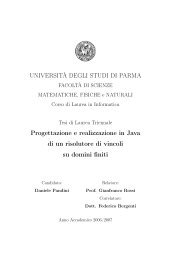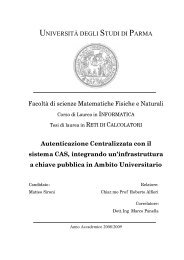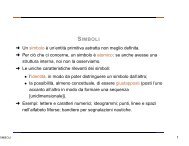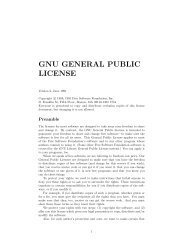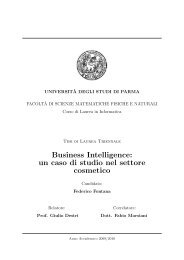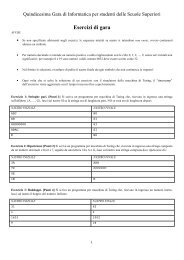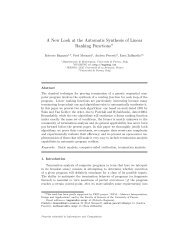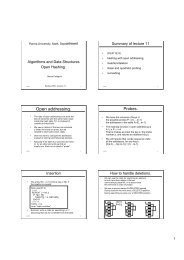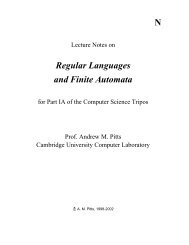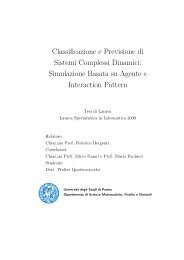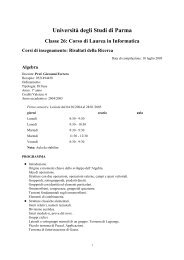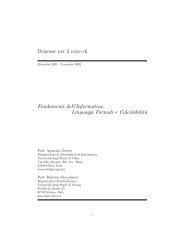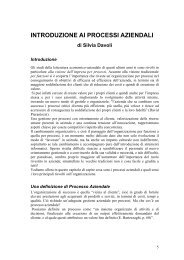a modern C++ library for the manipulation of Boolean functions
a modern C++ library for the manipulation of Boolean functions
a modern C++ library for the manipulation of Boolean functions
Create successful ePaper yourself
Turn your PDF publications into a flip-book with our unique Google optimized e-Paper software.
Case 4 If fvar = hvar < gvar,<br />
return make_node <br />
fvar, g, hfalse .<br />
Case 5 If gvar < fvar < hvar,<br />
return make_node gvar, gen_var_ite_h(f, gtrue, h), gen_var_ite_h(f, gfalse, h) .<br />
Case 6 If gvar < fvar = hvar or gvar < hvar < fvar,<br />
return make_node gvar, gen_var_ite(f, gtrue, h), gen_var_ite(f, gfalse, h) .<br />
Case 7 If gvar = hvar < fvar,<br />
return make_node gvar, gen_var_ite(f, gtrue, htrue), gen_var_ite(f, gfalse, hfalse) .<br />
Case 8 If hvar < fvar < gvar,<br />
return make_node hvar, gen_var_ite_g(f, g, htrue), gen_var_ite_g(f, g, hfalse) .<br />
Case 9 If hvar < fvar = gvar or hvar < gvar < fvar,<br />
return make_node hvar, gen_var_ite(f, g, htrue), gen_var_ite(f, g, hfalse) .<br />
The set <strong>of</strong> cases <strong>for</strong> var_ite is a strict subset <strong>of</strong> <strong>the</strong>se cases, obtained by removing<br />
<strong>the</strong> ones where fvar = gvar or fvar = hvar and replacing all calls to gen_var_ite,<br />
gen_var_ite_h and gen_var_ite_g with calls to var_ite, var_ite_h and var_ite_g<br />
respectively.<br />
3.2.7 Variables on which a <strong>Boolean</strong> function depends<br />
The algorithm vars which takes a ROBDD representing <strong>the</strong> <strong>Boolean</strong> function f and<br />
returns vars(f) can be easily implemented by visiting <strong>the</strong> ROBDD and collecting <strong>the</strong><br />
variables that label <strong>the</strong> nodes. This algorithm is one <strong>of</strong> <strong>the</strong> few ROBDD algorithms in<br />
CORAL <strong>for</strong> which no caching is provided. Pseudo-code is given in Algorithm 4.<br />
Require: a ROBDD node n<br />
function vars(n)<br />
if n = 0 or n = 1 <strong>the</strong>n<br />
return ∅<br />
else<br />
return <br />
nvar ∪vars(ntrue) ∪ vars(nfalse)<br />
Algorithm 4: The vars function<br />
3.2.8 Entailed and disentailed variables<br />
The algorithms entailed_vars and disentailed_vars (and <strong>the</strong>ir counterparts<br />
entailed_vars_no_cache and disentailed_vars_no_cache, which don’t use caching)<br />
are used to compute true(f) and false(f). In order to compute <strong>the</strong> set <strong>of</strong> all entailed<br />
variables in a ROBDD, we start from its root node and follow <strong>the</strong>se steps (<strong>the</strong> algorithm<br />
that looks <strong>for</strong> disentailed variables is very similar):<br />
3.2 ROBDD algorithms 17



